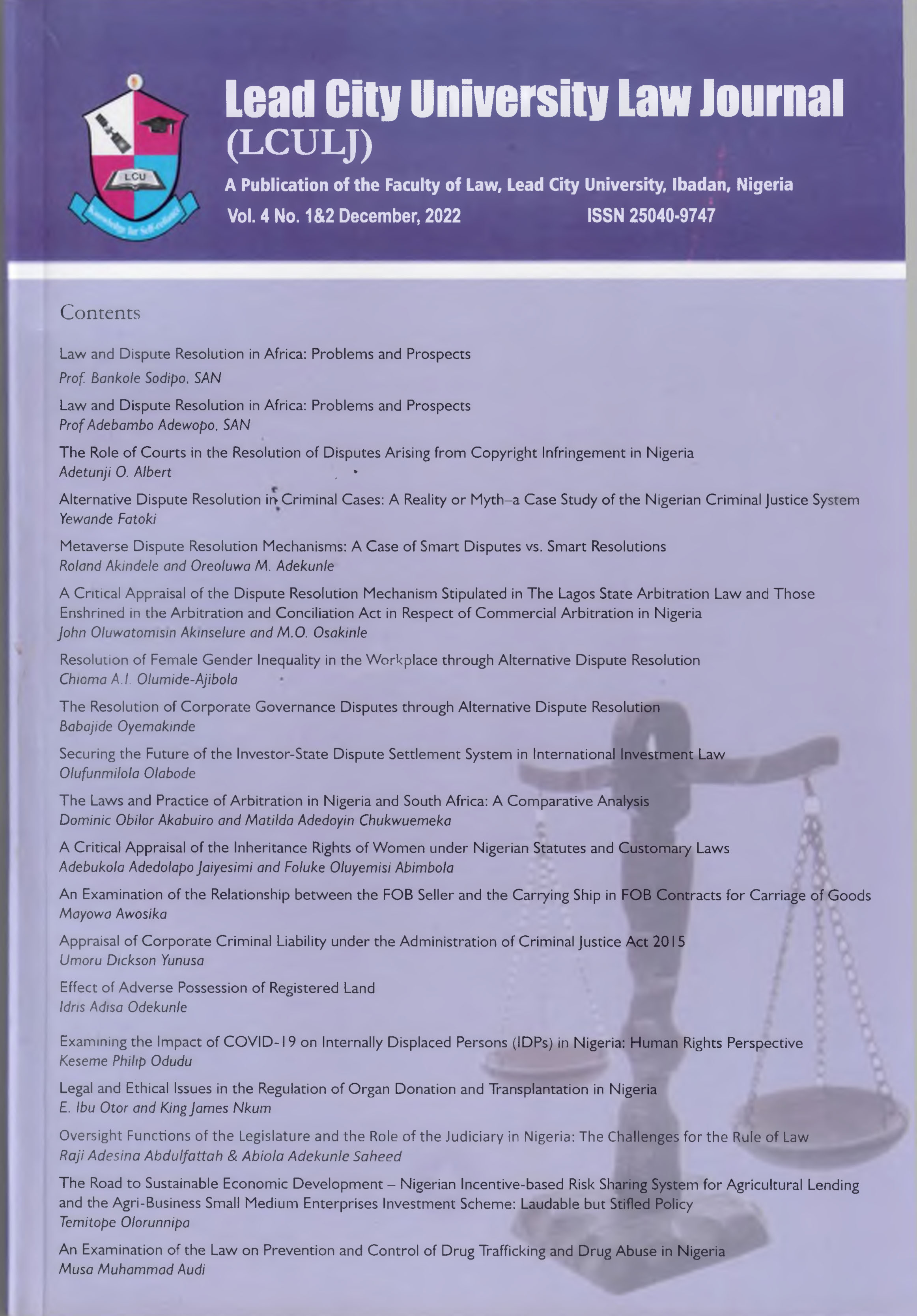OVERSIGHT FUNCTIONS OF THE LEGISLATURE AND THE ROLES OF THE JUDICIARY IN NIGERIA: THE CHALLENGES FOR THE RULE OF LAW
Keywords:
Democracy, Legislature, Judiciary, Rule of Law and Checks and BalanceAbstract
On the one hand, the ultimate objective of the oversight functions of the legislature is to
promote accountability, transparency, and responsiveness on the part of the executive and by
extension check and balance its public actions. On the other hand, the constitution vests the
judiciary as the third organ inter alia with the powers to interpret and apply all laws in the
country in relation to both criminal and civil matters and disputes between individuals, groups,
political authorities, as well as between one state and the Federal Government in a federal
system. It is against this backdrop that this article examined the oversight functions of the
legislature and the roles of the judiciary in Nigeria and the challenges it may constitute to the
rule of law. This paper argued that the legislative oversight function make for an important
source of suspicion and conflict, particularly between the legislature and the executive.
Therefore, the judiciary, ordinarily supposed to serve as an impartial arbiter is incapacitated
to serve the interest of the executive arm in many instances. This paper adopts historical and
analytical approaches through the use of primary and secondary documents as contained in
published and unpublished materials. The paper concludes and recommends that rule of law
and democracy can work effectively and efficiently only if the capacity of legislatures is
strengthened to address critical issues relating to constitutionalism, corruption, and poverty.
This can also be achieved by checking the excesses of the executive and collaborating with the
judiciary to avert the consequences of democracy by court order.

